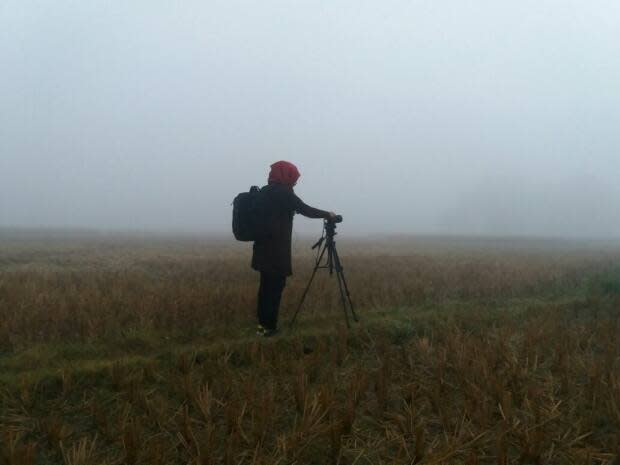U of R graduate makes pandemic-inspired documentary exploring human behaviour
Filmmaker Sayda Habib turned lockdown blues into an inspirational project.
Sayda Habib was pursuing a project on long-term care homes in Canada for her masters in journalism at the University of Regina when COVID-19 hit.
"Originally, I wanted to create a documentary portraying the abuse in the Canadian seniors homes. I wanted to work on this project because the number of seniors suffering from abuse in nursing homes has tripled in the last few years. The documentary was to be named Care in Jeopardy," Sayda said.
Weeks into the pandemic, however, it became clear to Sayda and her supervisor that she would have to course-correct.
Many of her key characters were restricted from receiving guests and the logistics for getting a camera anywhere became incredibly difficult.
"I knew I had to change my plans," Sayda said.
"Most nursing homes were restricted to visitors already at that time which meant I had to change my project to a more attainable one."

Although it was disheartening to change course late in the academic year after investing so much time and effort into her research, Sayda decided to make a documentary about the cause of the change.
Pandemic Minds was born.
The documentary finds Sayda following the lives of different characters from different parts of the world to explore how they are adjusting to the strange new world. Assisted by clinical psychologist Syeda Batool Najam, Sayda examines how the various personalities perceive the global pandemic and why.
"Pandemic Minds investigates human behaviour in a global crisis through the lens of the COVID-19 pandemic. This documentary explores five factors of human behaviour through the stories of ordinary people," Sayda said. "The factors that were mentioned in the documentary were denial, self-interest, fear/anxiety, adaptation and solidarity."
Sayda raced against the clock to finish her documentary. As she was essentially starting a brand new project, she had to act quickly and find creative solutions to whatever hurdles were thrown her way.
This proved to be a long process.
"I can say it took me about three and half months to write, record and edit this documentary. But the whole process at that time seemed like a decade," Sayda said.
Sayda faced challenges creating the documentary, from finding characters to co-ordinating them.
"The biggest challenge was to be able to get at least 20 participants who were willing to record themselves one whole day. Not everyone was comfortable recording themselves and even when they agreed, some of the participants did not follow the instructions while recording," Sayda said.
"I also had a hard time getting the materials online. This is because I had participants from different countries and not everyone was able to send me the files through the shared drive."
Sayda was able to come through shining on the other side, regardless of the challenges. She said she especially learned the importance of patience and perseverance. Moving forward, she would like to make a documentary series inspired by Pandemic Minds.
"The psychological explanations in the documentary would be very detailed yet simple to understand. To give you an example, one episode can solely be on the increase in domestic violence during a pandemic or this specific pandemic," Sayda said.
"What is the psychological reason behind that? What goes through the mind of the perpetrator and what can be done about it?"

 Yahoo Movies
Yahoo Movies 